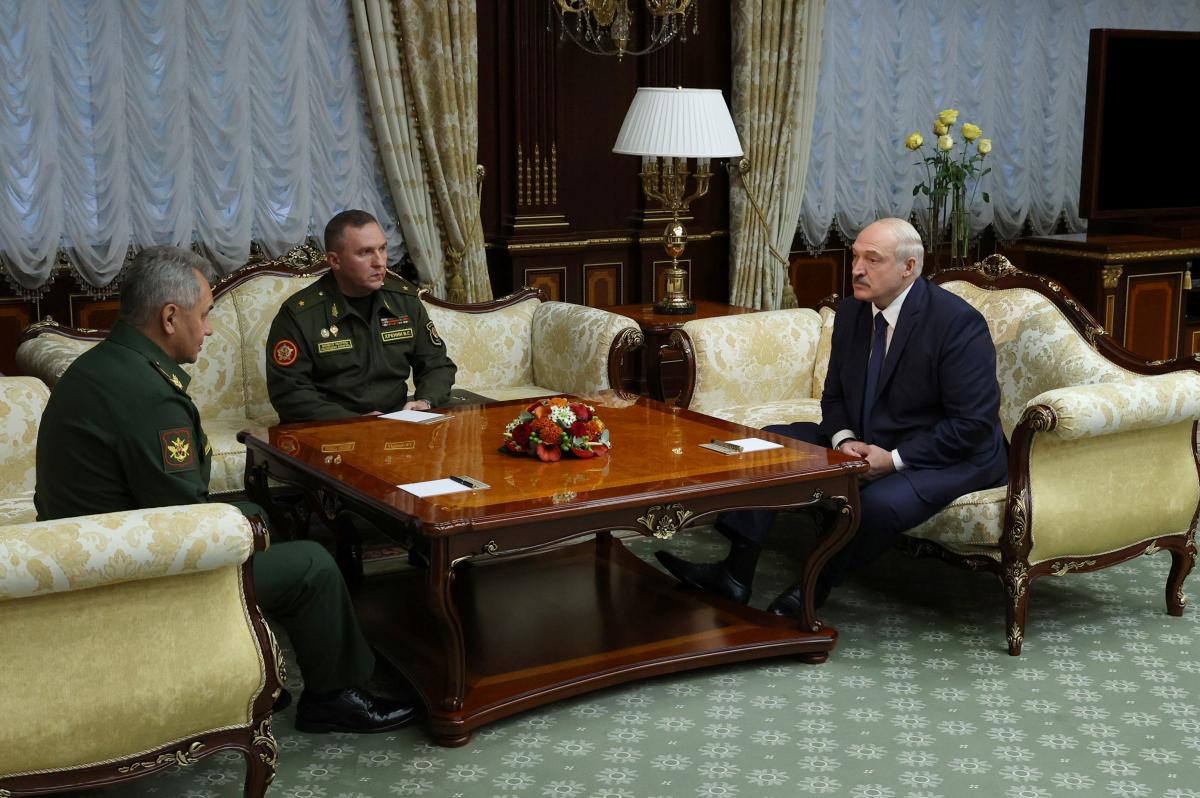
President of Belarus Alexander Lukashenko has asked Russian President Vladimir Putin to provide "some types of weapons."
This was announced on the Belarusian president's website after a meeting with Russia's Defense Minister Sergei Shoigu on September 16.
Read alsoPutin, Lukashenko meet in Sochi, talks last over four hours
"I asked the Russian President for some types of weapons. I told him that when you come we will see what we need to do to strengthen the Union State. There is nothing to be afraid of; we are ready to go for it. The recent events suggest that we should step up efforts to protect the interests of Belarusians and Russians. It happened that we are left alone with it, but we are not the weakest," Lukashenko was quoted as saying.
He also stresses Belarus is capable of defending the borders of the Union State.
"If someone thinks that Belarus has become weaker, that we will not survive and that Russia will step aside, these speculations can only deceive fools. We are capable of maintaining control over the situation not only in Belarus, but also along our border. Do not doubt our capability to defend our common Fatherland from Brest to Vladivostok. The recent developments give us more grounds to stick together and to frustrate plans to drive a wedge between us in the future," he said.
Lukashenko's meeting with Putin in Sochi
- On September 14, Belarusian President Alexander Lukashenko met with his Russian counterpart, Vladimir Putin, in Sochi.
- During the meeting, Putin promised to lend US$1.5 billion to Belarus.
- After the meeting, the Kremlin announced that they would recognize Lukashenko as the only legitimate president of Belarus.
Recent developments in Belarus in brief
- On August 9, presidential elections were held in Belarus. The country's Central Election Commission announced the final election results. In particular, 80.1% of voters supported incumbent President Alexander Lukashenko, 10.1% voted for Svetlana Tikhanovskaya, 1.67% for Anna Kanopatskaya, 1.2% for Andrey Dmitriev, and 1.14% for Sergei Cherechnya. Some 4.59% voted against all candidates.
- Thousands took to the streets to protest what many believe was a rigged vote count. Riot police violently cracked down on protesters.
- Belarus' Ministry of Internal Affairs said about 7,000 protesters had been detained in different cities since August 9. On the evening of August 13, the authorities started to release detainees.
- On August 16, the March of Freedom, the largest protest in the history of Belarus, took place in Minsk. Hundreds of thousands of people joined in.
- Lukashenko has repeatedly claimed "foreign interference" in the election and external efforts to foment the protests. He spoke with Russian President Vladimir Putin who had promised him comprehensive assistance upon request.
- On August 27, Putin suggested sending Russian security forces to suppress protests in Belarus.
- The European Union declared non-recognition of the Belarus election results and reached an agreement to impose sanctions against Belarusian officials in response to vote rigging and the use of violence against protesters.
- On September 15, the Verkhovna Rada of Ukraine adopted a statement on Belarus. Ukrainian lawmakers said the presidential elections in that country were unfair. They condemned repression against protesters and vowed support for sanctions to be introduced by the European Union against Belarusian officials.

